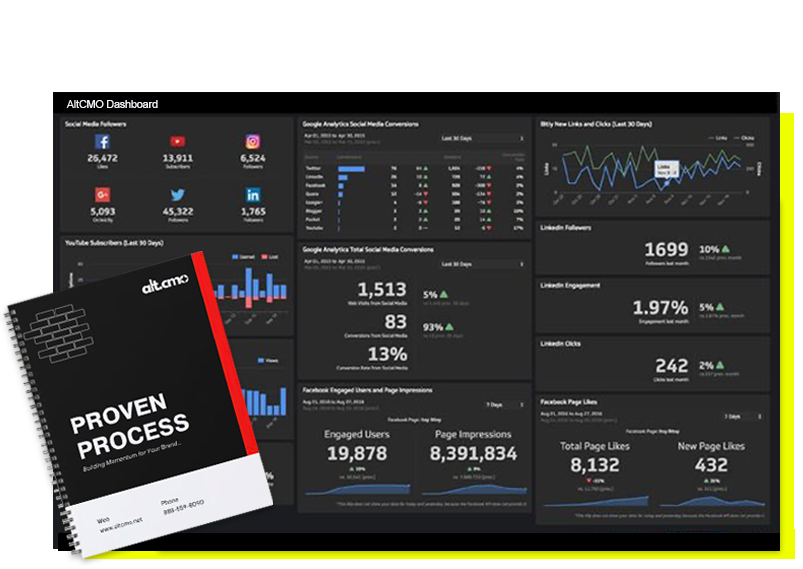Establishing ICP (Ideal Client Persona)

Overview
This plan aims to help you identify and create a detailed Ideal Client Persona (ICP) to improve your marketing efforts, product development, and customer service.
The ICP will be a representation of the perfect customer for your business, defined through research, data analysis, and insights. The plan will be divided into key stages: Preparation, Data Collection, Segmentation, Persona Development, Validation, and Implementation.
Client Briefing
Client Briefing
- Conduct an initial meeting with you to understand their business objectives, target market, and current customer base.
- Gather any existing customer data, marketing materials, and previous customer segmentation efforts.
Research Plan Development
- Develop a research plan outlining the methods and tools that will be used to gather data about your customers.
- Identify key metrics and information needed to build a comprehensive ICP.
Team Coordination
- Assemble a team responsible for different aspects of the ICP development process.
- Define roles and responsibilities to ensure a coordinated effort.
Data Collection
Customer Surveys
- Design and distribute surveys to existing customers to gather demographic, psychographic, and behavioral data.
- Ensure questions are clear, relevant, and designed to elicit detailed responses.
Interviews
- Conduct in-depth interviews with a sample of existing customers to gain qualitative insights.
- Use open-ended questions to explore customer motivations, challenges, and preferences.
Customer Data Analysis
- Analyze existing customer data from CRM systems, sales records, and customer service logs.
- Identify patterns and trends that can inform the development of the ICP.
Market Research
- Conduct market research to gather information on industry trends, competitor strategies, and market conditions.
- Use secondary data sources such as industry reports, market studies, and online resources.
Segmentation
Data Segmentation
- Segment the collected data into distinct customer groups based on shared characteristics and behaviors.
- Use criteria such as demographics, purchasing behavior, and product usage to create meaningful segments.
Identifying Key Segments
- Identify the most valuable customer segments that align with your business objectives.
- Prioritize segments based on factors such as revenue potential, strategic importance, and alignment with the brand.
Segment Analysis
- Conduct a detailed analysis of each identified segment to understand their specific needs, pain points, and preferences.
- Create summary profiles for each segment to facilitate comparison and selection.
Persona Development
Defining Persona Elements
- Define the key elements of the ICP, including demographics (age, gender, income, education), psychographics (values, attitudes, interests), and behaviors (buying patterns, product usage, decision-making process).
- Ensure these elements are comprehensive and relevant to your business.
Persona Creation
- Develop detailed profiles for each ICP, combining quantitative data and qualitative insights.
- Give each persona a name, photo, and backstory to make them relatable and tangible.
Persona Templates
- Create standardized templates to document each ICP, ensuring consistency and ease of use.
- Include sections for demographics, psychographics, behaviors, pain points, goals, and preferred communication channels.
Validation
Client Review
- Present the developed ICPs to you for review and feedback.
- Discuss any adjustments or refinements needed based on your input.
Internal Validation
- Share the ICPs with internal stakeholders, including sales, marketing, and customer service teams.
- Gather feedback on the practicality and relevance of the personas from different perspectives within your organization.
Customer Validation
- Validate the ICPs with a sample of existing customers to ensure accuracy and resonance.
- Use feedback to make any necessary adjustments to the personas.
Implementation
Communication Strategy
- Develop a communication strategy to ensure the ICPs are effectively shared and utilized across your organization.
- Conduct workshops and training sessions to educate your teams on how to use the personas in their roles.
Marketing and Sales Alignment
- Align marketing and sales strategies with the developed ICPs to ensure targeted and consistent messaging.
- Use the personas to guide content creation, campaign development, and lead generation efforts.
Product Development
- Use the ICPs to inform product development and innovation strategies.
- Ensure new products and features align with the needs and preferences of the ideal clients.
Customer Service
- Train customer service teams to understand and use the ICPs to provide personalized and effective support.
- Develop scripts and guidelines based on the personas to improve customer interactions.
Performance Monitoring
- Establish metrics and KPIs to track the effectiveness of the ICPs in achieving business objectives.
- Regularly review and update the personas based on new data and market changes.
Deliverables
Ideal Client Persona Profiles
- Detailed profiles for each ICP, including demographics, psychographics, behaviors, pain points, goals, and communication preferences.
Segmentation Report
- A report summarizing the segmentation process, key segments identified, and the rationale behind the selection of the ICPs.
Implementation Plan
- A comprehensive plan outlining how the ICPs will be integrated into your marketing, sales, product development, and customer service strategies.
Training Materials
- Workshops, presentations, and training materials to educate your team on the use and application of the ICPs.
